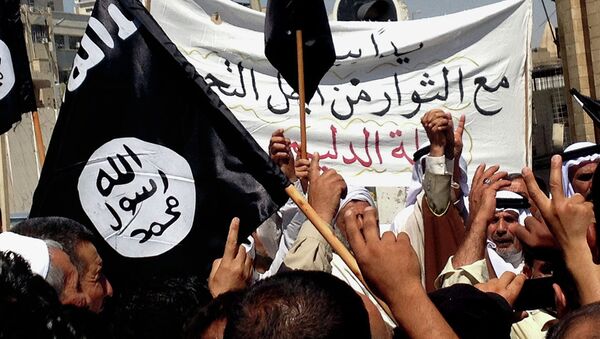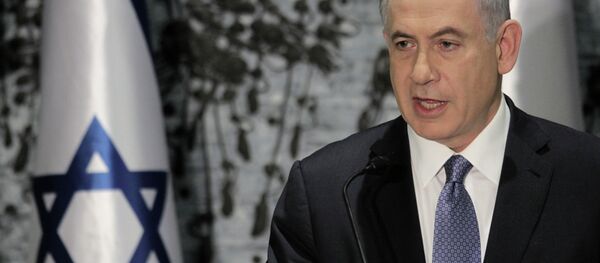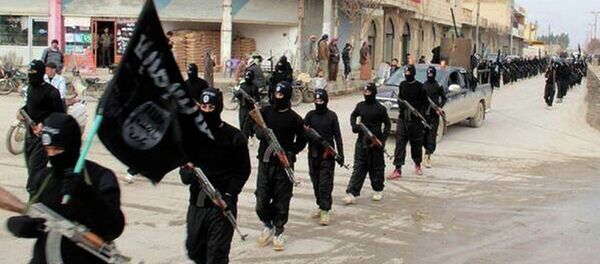IS had already announced in propaganda its intent to develop nuclear weapons, while India had previously warned that the terrorist group could acquire such weapons from Pakistan, the British newspaper the Independent reported.
Now, the group has in its possession chemicals it seized from labs and hospitals – chemicals that normally would only be made available to governments, said Australia’s foreign minister, Julie Bishop, citing reports by the Australian department of defense and the foreign office.
As IS captured territories across Syria and Iraq, "the insurgents did not just clear out the cash from local banks," Bishop said in an interview with newspaper the Australian.
NATO has expressed concerned over IS' chemical stockpile, while the Australia Group, a 40-nation bloc committed to banning chemical weapons, addressed the potential threat at its summit last week.
"This is really worrying them," Bishop was quoted as saying by the Australian.
Just last week, Bishop, speaking to the Australia Group, said it was possible that IS was weaponizing poisonous gases such as chlorine.
"Daesh is likely to have amongst its tens of thousands of recruits the technical expertise necessary to further refine precursor materials and build chemical weapons," she said, using the Arabic acronym for IS.
Reports of the group's proliferation of radioactive material come at a time when experts warn that the group will ramp up offensives to mark the start of Ramadan.
The United States-based Institute for the Study of War noted that the group usually reserves its major operations to coincide with the Islamic holy month.
IS "is likely to begin and end Ramadan with attempted spectacular military offensive actions in Iraq and Syria," it said.




